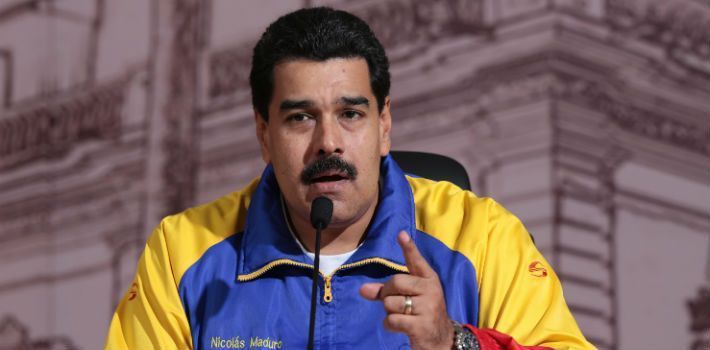
EspañolThe profound crisis engulfing Venezuela shows no sign of abating. On the contrary, the first month of 2015 has exposed to the world the country’s dire shortage of basic foodstuffs and household products, rampant insecurity, human-rights violations, criminalization of protests, and the disarray of its armed forces, just to name a few issues.
This has created the conditions for renewed calls across society for the resignation of President Nicolás Maduro, or at least for such a possibility to be openly discussed.
And the voices demanding it are not isolated. They come mainly from the Venezuelan opposition, who see in his resignation the only way for the country begin reconstructing a deeply fragmented society, in which the most basic values of cooperation have all but disappeared.
But ordinary citizens unconnected to formal politics also feel the imminent crisis. The open disdain for human life has reached such heights that now Caracas ranks among the world’s top violent cities, with the second highest number of murders in 2014 of any city in the world.
Discontent has penetrated even the hardline Chavismo camp, and they too attribute Venezuela’s disaster to the president’s failures.
Exhaustion and disillusionment among Venezuelans have resulted in Maduro’s lowest approval rates, just 22 percent. It would seem as though the discontent has penetrated members of the hardline Chavismo camp — those who back the revolutionary process no matter what. Even they attribute Venezuela’s disaster to the president’s failures.
While the two-year-old Maduro regime can’t take the blame for everything, it’s beyond doubt that Maduro has been clueless as to how to solve the crisis inherited from the late President Hugo Chávez, who managed to conceal the imminent downturn by papering over the cracks with oil revenues.
Maduro’s removal is perhaps the only solution. He is unwilling to change path, and more importantly unable to do so, given internal struggles in his party and external challenges from allied governments and illicit groups. The latest proof is his recent expropriation of Farmatodo, Venezuela’s largest pharmacy chain.
But is it really possible or even likely that Maduro will resign his office? The 1999 Constitution, tailored to Chávez’s wishes, contemplates such a scenario in Article 233. If the presidency is vacant either through death or resignation, there are clear steps to be followed, including the holding of elections.
However, either a resignation or a violent coup — the latter of which is not only undesirable but also unlikely, despite Maduro’s regular complaints of foreign and domestic plots — cannot happen without the support of the military. Latin American and Venezuelan history provides multiple examples of this, as in the 1958 ousting of dictator Marcos Pérez Jiménez.
The Castro brothers would likely have a say, if not exercise a veto, in forcing Maduro’s resignation.
The army would have to go out on a limb to force Maduro’s resignation. On the one hand, Chávez always had them in his pocket through the granting of lavish perks, which Maduro — a civilian unlike his predecessor — has had to expand in order to secure their loyalties.
On the other, Diosdado Cabello, current National Assembly president, is the only rival claimant to army loyalty. While Cabello might not be on the best of terms with Maduro, his position is not strong enough to make a stand against the president.
Cabello has earned himself an unfavorable public reputation, and several individuals — including his former bodyguard, Leamsy Salazar — have come forward to accuse him of ties to drug trafficking, and even leadership of the infamous Soles cartel.
Finally, one needs to take into account allegations that the Cuban government has infiltrated and even commands the Venezuelan army. The Castro brothers would likely have a say, if not exercise a veto, in such a scenario.
Despite all the above, it’s still possible that Cuban-Venezuelan commanders might take the matters into their own hands and decide to push Venezuela into a democratic transition without bloodshed. If the economic crisis worsens, and Maduro’s ineffective plans to steal the government’s way to prosperity continue, the army’s hand may be forced.
However, before such an eventuality, mounting international pressure might just — as former Costa Rican President Oscar Arias wrote recently in El País — catalyze Maduro’s voluntary resignation. Only time will tell, although the ordeal of ordinary Venezuelans is likely to get worse before it gets better.
Translated by Daniel Duarte. Edited by Laurie Blair.
 Versión Español
Versión Español












